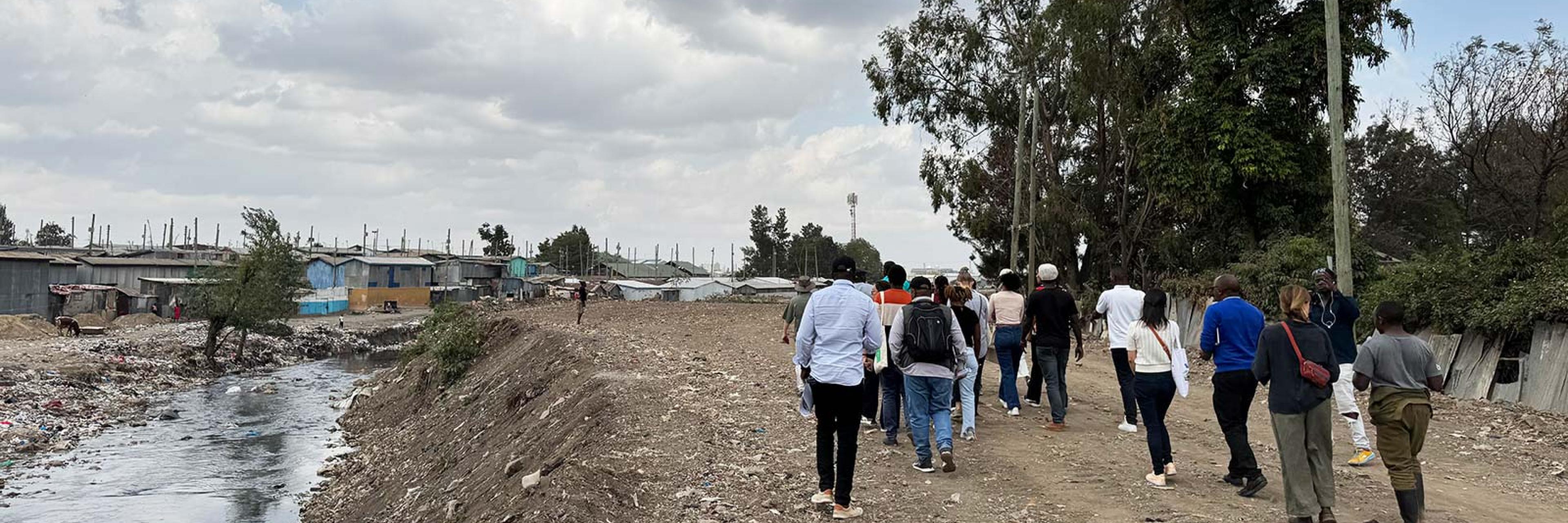
River Revitalization in Nairobi
One and a half years after devastating floods wiped out large stretches of riverside settlements along the Ngong River in Mukuru and Kayaba, Nairobi, the newly formed Ngong River Planning Consortium, together with the River Cities Network (RCN), IIAS, and the Southeast Asia Neighborhoods Network (SEANNET), gathered 15 experts in river revitalization from all over the world in Mukuru for an in-situ engagement project from 7-14 September 2025. The objective of the workshop was to help the Consortium foster learning across disciplines and sectors and to provide an opportunity to analyze and critique post-flooding river revitalization designs, while developing a multi-scalar framework for river basin planning.
Details from the workshop
The work took place at three levels. At the micro level, workshop participants engaged directly with Mukuru residents to integrate community-driven needs and artistic expressions into landscape designs, fostering site-specific and culturally grounded interventions. At the meso level, the focus shifted to neighborhood-scale engagement, where participants collaborated with communities to address future flooding challenges and to propose interventions to enhance the overall quality of the built and natural environment. At the macro level, the partners are contributing to the development of a planning framework for the broader Ngong river basin, synthesizing insights across scales to inform long-term, integrated strategies for riparian management.
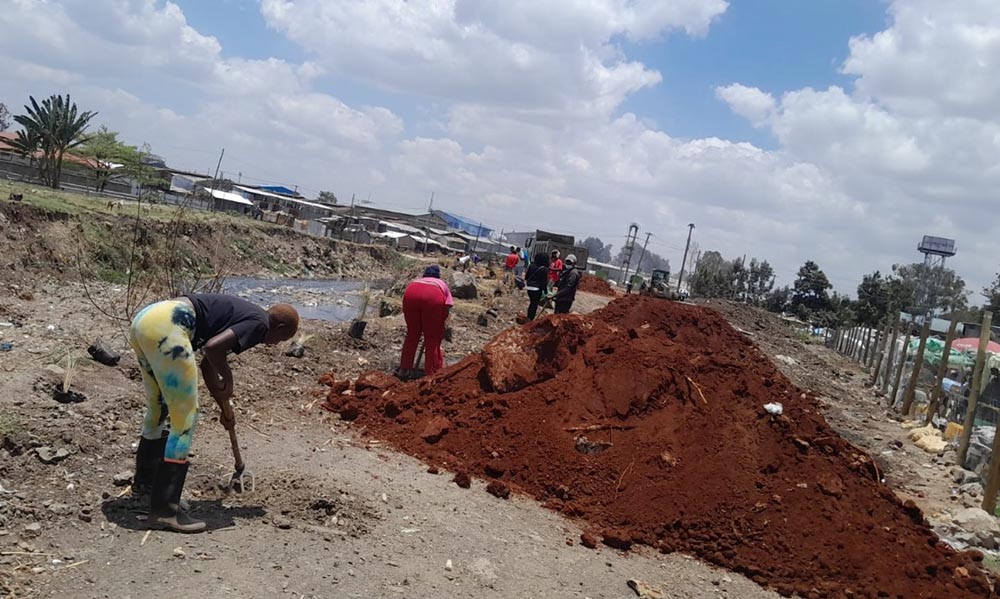
Youth groups engage in tree planting on the newly vacated riverbank in Mukuru Kwa Reuben (Photo courtesy of Nuru Youth CBO Mukuru, September 2025)
Community Action for a Cleaner, Greener, and Peaceful Mukuru kwa Reuben
On 14 November 2025, our recent community-led initiative brought together residents and partner groups for a day dedicated to restoring our environment, promoting peace, and uplifting public spaces within Mukuru kwa Reuben.
The team focused on unblocking the major sewage and drainage lines running from Reuben Center, Hope Center, and Bridge International School toward the river. Clearing these long drainages helps reduce flooding, improve sanitation, and create a healthier living environment for families.
Alongside this, participants carried out an extensive clean-up campaign along the Gonge River in Mukuru kwa Reuben, removing waste and clearing pathways to protect the river ecosystem and improve community safety.
Tree planting activities were held outside Bridge International Primary School, where several trees were planted to create shade and provide a resting area for the community. This effort supports long-term environmental restoration and contributes to cleaner air and cooler public spaces.
A colorful wall mural was also painted on one of the walls opposite Bridge Primary School, promoting messages of peace, unity, and environmental awareness. In addition, children enjoyed face painting and fun activities hosted outside the school, strengthening social bonds and giving young ones a joyful learning experience.
These activities highlight the importance of shared responsibility, peaceful coexistence, and community-driven environmental care.
This paragraph has been authored by: The Community, Nuru Youth CBO, Biupe Innovators, Ubuntu CBO and KDI (Kounkuey Design Initiative).
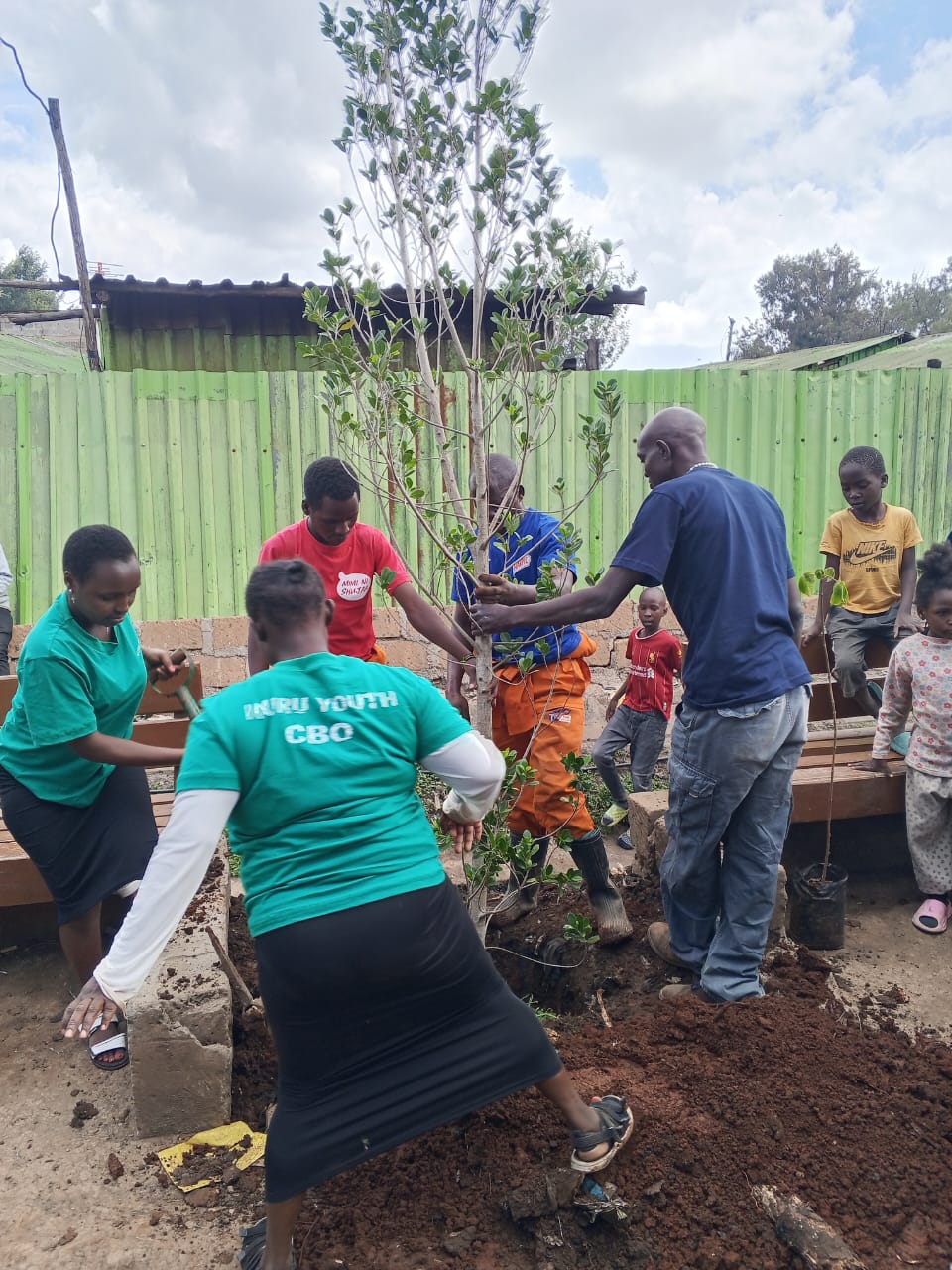
Tree planting at Reuben ward, Outside Bridge international primary school. (Photo courtesy of Nuru Youth CBO Mukuru, November 2025)
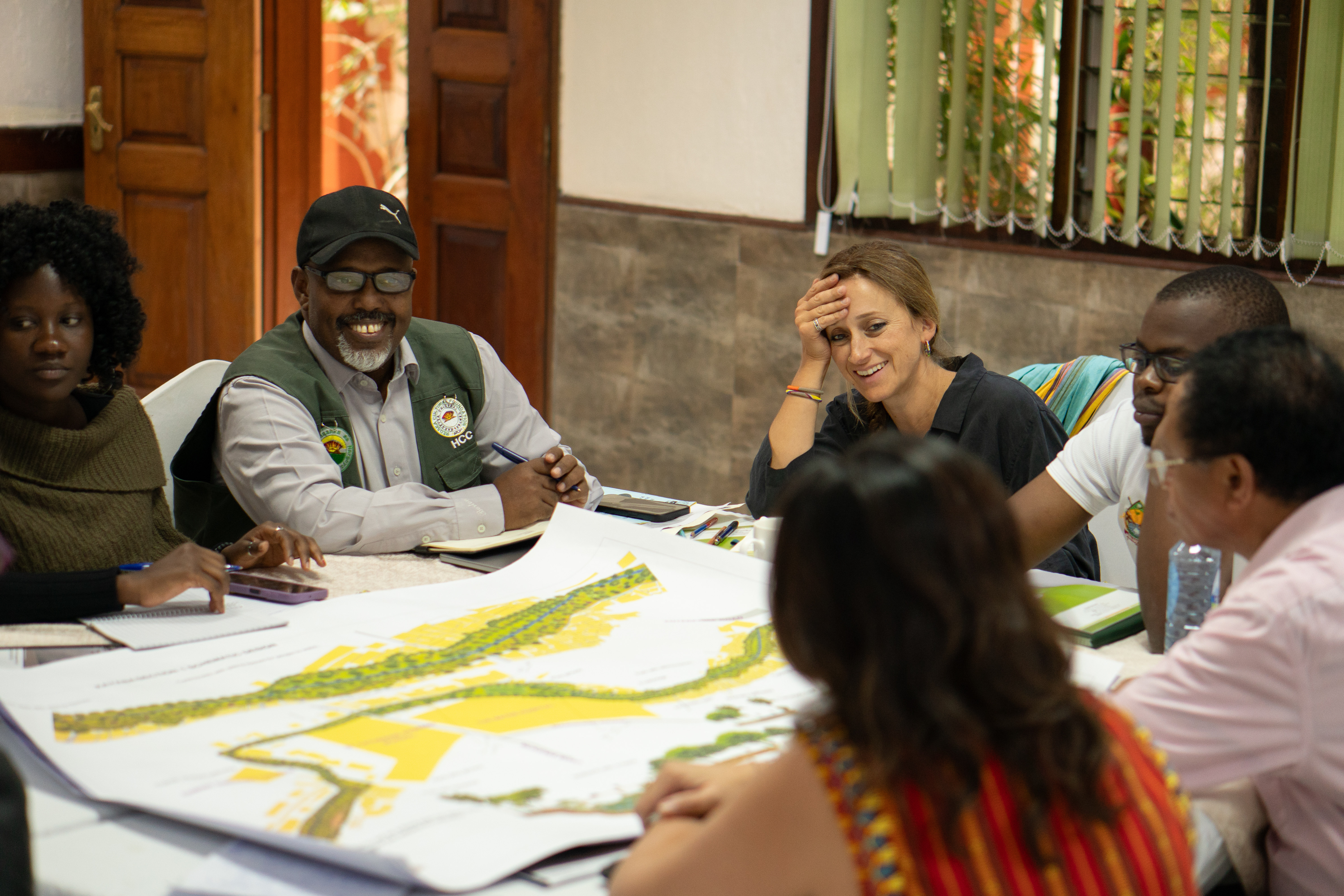
Snapshot from day 2 of the in-situ engagement project. (Cherelle Jaleesa Karsseboom, September 2025)
The collaboration is part of an ongoing process. The RCN and its partners are committed to support the Ngong River Planning Consortium in creating a participatory and forward-thinking urban planning process for Mukuru and Kayaba by integrating artistic innovation, community engagement, and environmental stewardship. Through collaboration with artists, industries, and residents, the Consortium aims to deliver resilient, inclusive, and culturally vibrant urban spaces that serve as a model for sustainable development in the Ngong River riparian zone – and beyond.
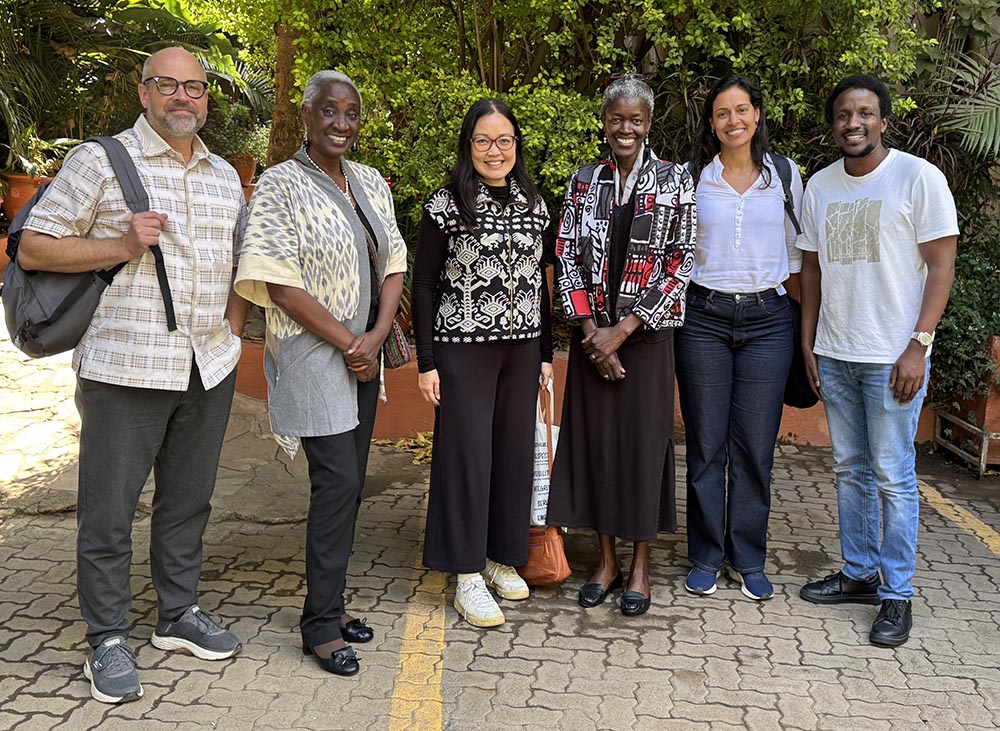
Joint organizers of the in-situ engagement program. From left to right: Paul Rabé, co-coordinator of RCN; Jane Weru, director of Akiba Mashinani Trust; Rita Padawangi, coordinator of the Southeast Asia Neighborhoods Network; Joy Mboya, director of the GoDown Art Centre; Satya Patchineelam, co-coordinator of RCN; and Patrick Njoroge, deputy director of Akiba Mashinani Trust. (Photo courtesy of Akiba Mashinani Trust, September 2025)

Workshop participants engage in a transect walk along the Ngong River (Photo courtesy of Paul Rabé, September 2025)